Interrelations between Florence Nightingale’s environmentalist theory and the ecosystem theory
Interrelaciones entre la teoría ambientalista de Florence Nightingale y la teoría de los ecosistemas
Inter-relações da teoria ambientalista de Florence Nightingale e a teoria ecossistêmica
Hedi Crecencia Heckler de Siqueira; Rosiele Gomes Flores; Alacoque Lorenzini Erdmann; Gelson Garcia Dutra; Miguel Armando Bick; Diéssica Roggia Piexak
Abstract
Objective: To reflect on the interrelations between Florence Nightingale's Environmentalist Theory and the Ecosystem Theory and their influences on the reparative process of diseases and on the health/disease/care of human beings.
Method: A theoretical-philosophical reflection on the interrelations between Florence Nightingale's Environmentalist Theory and the Ecosystem Theory, based on authors who discuss this topic.
Results: Both theories are similar in relation to the search for self-knowledge, self-organization/autopoiesis and the way to visualize the components of reality in human life and its interactions with the environment. Both involve the totality of the environment's biotic and abiotic organisms, and consider that they interrelate, influence, cooperate and interfere in human life.
Conclusion and implications for the practice: The interrelations between both theories make it possible to construct, in a holistic way, new knowledge about human beings' thinking, seeing, feeling and acting in the universe and of Nursing care, thus apprehending the totality of the needs, and the integration and dynamic balance of being and living healthy.
Keywords
Resumen
Palabras clave
Resumo
Objetivo: Refletir acerca das inter-relações da Teoria Ambientalista de Florence Nightingale e a Teoria Ecossistêmica e suas influências no processo reparativo das enfermidades e na saúde/doença/cuidado do ser humano.
Método: Reflexão teórico-filosófica acerca das inter-relações da Teoria Ambientalista de Florence Nightingale e a Teoria Ecossistêmica, com base em autores que discutem essa temática.
Resultados: As duas teorias assemelham-se em relação à busca do autoconhecimento, auto-organização/autopoiese e da forma de visualizar os componentes da realidade no viver humano e suas interações com o ambiente. Ambas envolvem a totalidade dos organismos vivos e não vivos do ambiente, consideram que se inter-relacionam, influenciam, cooperam e interferem no viver humano.
Conclusão e implicações para a prática: As inter-relações das duas teorias possibilitam construir, de forma integral, conhecimento novo acerca do pensar, ver, sentir e agir do ser humano no universo e do cuidado de enfermagem, apreendendo, assim, a totalidade das necessidades, a integração e o equilíbrio dinâmico do ser e viver saudável.
References
1 Nightingale F. Notes on nursing: what is and what is not. Nova York: Dover Publications; 1969.
2 Nightingale F. Notas sobre enfermagem: um guia para cuidadores na atualidade. Tradução de Telma Ribeiro Garcia e Ivone Evangelista Cabral. Rio de Janeiro: Elsevier Brasil; 2010.
3 Bezerra CMB, Silva BCO, Silva RAR, Martino MMF, Monteiro AI, Enders BC. Análise descritiva da teoria ambientalista de enfermagem. Enferm Foco. 2018 nov;9(2):79-83.
4 Riegel F, Crossetti MGO, Martini JG, Nes AAG. Florence Nightingale’s theory and her contributions to holistic critical thinking in nursing. Rev Bras Enferm. 2021 mai;74(2):e20200139.
5 Nightingale F. Anotações de enfermagem: o que é, e o que não é. Tradução de Janaína Belem. São Paulo: Rideel; 2010.
6 Siqueira HCH, Thurow MRB, Paula SF, Zamberlan C, Medeiros AC, Cecagno D et al. Health of human being in the ecosystem perspective. Rev Enferm UFPE On Line. 2018 fev;12(2):559-64.
7 Maturana HR, Varela FJ. A árvore do conhecimento: as bases biológicas da compreensão humana. 9ª ed. São Paulo: Palas Athenas; 2011.
8 Paula SF, Siqueira HCH, Medeiros AC, Rangel RF, Rodrigues ST, Pedroso VSM. Health education provided by the nurse to the career in the light of ecosystem thinking. Res Soc Dev. 2020 mar;9(1):e63942854.
9 Borson LAMG, Cardoso MS, Gonzaga MFN. A teoria ambientalista de Florence Nightingale. Rev Saúde Foco. 2018;10(2):25-56.
10 Dossey BM, Rosa WE, Beck DM. Nursing and the Sustainable Development Goals: from Nightingale to now. Am J Nurs. 2019 mai;119(5):44-9.
11 Rangel RF, Paula SF, Zamberlan C, Backes DS, Medeiros AC, Siqueira HCH. Comprehensive care from the perspective of nurses: an ecosystem approach. Rev Bras Enferm. 2020 dez;73(supl 6):e20190781.
12 Odum E. Fundamentos de ecologia. 6ª ed. Lisboa: Fundação Calouste Gulbenklan; 2001.
13 Capra F, Luisi PL. A visão sistêmica da vida: uma concepção unificada e suas implicações filosóficas, políticas, sociais e econômicas. São Paulo: Cultrix; 2014.
14 Bertalanffy LV. Teoria geral dos sistemas: fundamentos, desenvolvimento e aplicações. 8ª ed. Petrópolis: Vozes; 2015.
15 Prigogine I. Ciência, razão e paixão. 2ª ed. São Paulo: Livraria da Física; 2009.
16 Salvati CO, Gomes CA, Haeffner LSB, Marchiori MRCT, Silveira RS, Backes DS. Humanization of the hospital: participatory construction of knowledge and practices on care and ambience. Rev Esc Enferm USP. 2021 ago;55:e20200058.
17 Dalmolin IS, Heidemann ITSB, Freitag VL. Integrative and complementary practices in the Unified Health System: unveiling potentials and limitations. Rev Esc Enferm USP. 2019 dez;53:e03506.
18 Santos TCF, Peres MAA, Almeida Fo AJ, Aperibense PGGS, Alcántara EL. Florence Nightingale’s legacy: a reflection from Pierre Bourdieu’s perspective. Texto Contexto Enferm. 2022 fev;31:e20210200.
19 Dios-Aguado MM, Gómez-Cantarino S, Queirós PJP, Peres MAA. The light of Florence Nightingale in the care for COVID-19 patients in primary health care. Rev Gaúcha Enferm. 2021 set;42(spe):e20200303.
Submitted date:
06/01/2023
Accepted date:
11/08/2023



